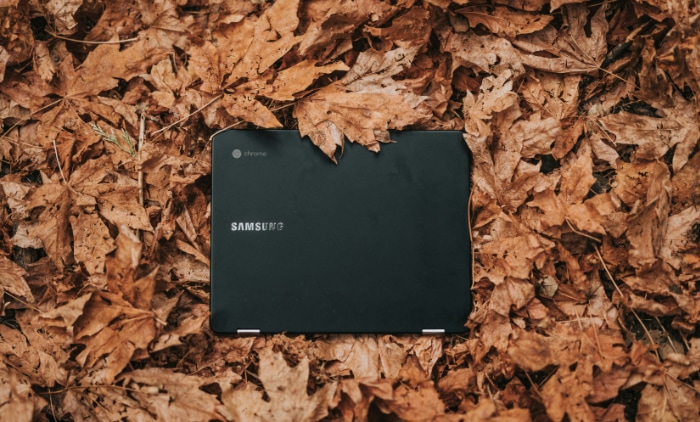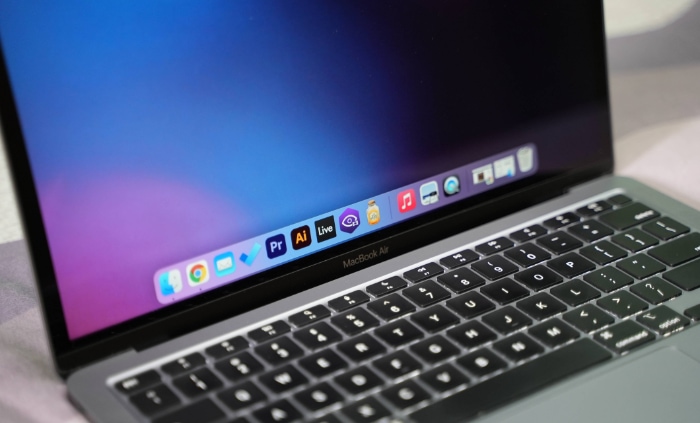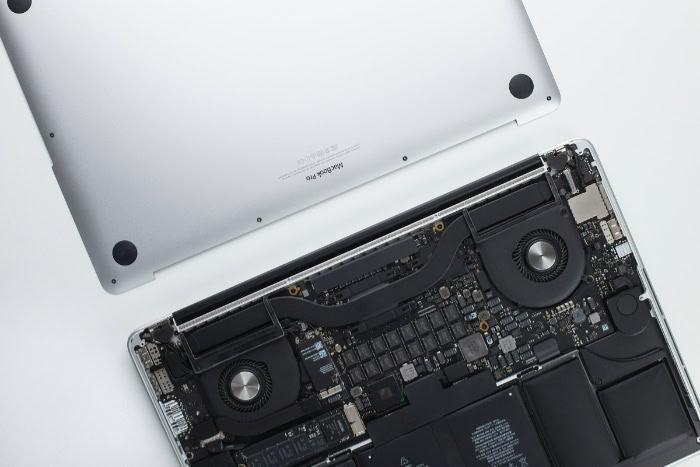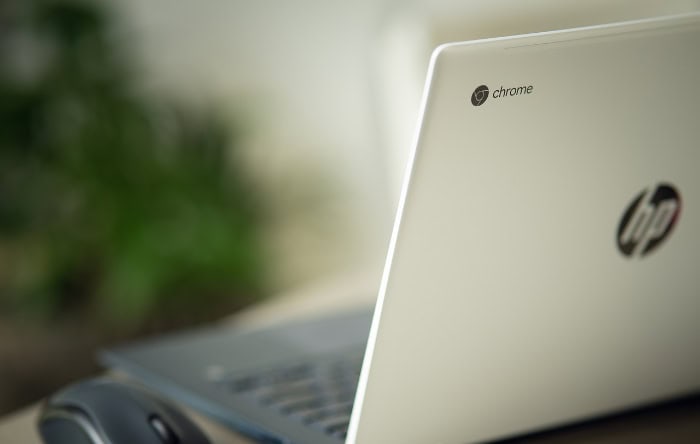Chromebook vs. MacBook: Budget Meets Luxury

The decision between a Chromebook and a MacBook can be a defining choice for how you work, learn, and create. With their distinct philosophies, these laptops cater to different users: Chromebooks focus on affordability and streamlined cloud-based productivity, while MacBooks emphasize premium performance, versatility, and seamless ecosystem features.
For buyers, it’s not just about hardware or software but how these devices align with individual lifestyles and goals.
Operating Systems and Ecosystem Integration
The operating system is perhaps the most defining element of any laptop, shaping how users interact with their devices and perform tasks. Chromebooks and MacBooks take fundamentally different approaches, with ChromeOS offering a lightweight, cloud-first platform, while macOS delivers a full-fledged computing environment with powerful software capabilities.
ChromeOS vs. macOS Core Functionalities
ChromeOS is a web-centric operating system built around the Google Chrome browser. It relies heavily on cloud storage and is optimized for Google Workspace apps like Docs, Sheets, and Slides.
This makes it ideal for those who prioritize simplicity and spend most of their time online. In addition to web apps, ChromeOS supports Android apps through the Google Play Store and even Linux apps for users with more technical requirements.
Its lightweight design allows Chromebooks to perform efficiently on less powerful hardware, but users may find limitations when running complex or resource-intensive applications.
On the other hand, macOS is a UNIX-based operating system designed for desktop-grade functionality. It is known for its stability, smooth performance, and intuitive user interface.
MacBooks benefit from native Apple software such as Final Cut Pro for video editing and Xcode for app development, which are favored by creative professionals and programmers alike. Beyond its own apps, macOS supports a vast range of third-party software, empowering users with robust multitasking and productivity options that are ideal for intensive workloads.
Cloud-First vs. Local Storage Workflows
The two systems fundamentally differ in their approach to data storage and workflows. Chromebooks emphasize cloud-based storage, with Google Drive deeply integrated into ChromeOS.
Files are automatically backed up and synced across devices, which enhances accessibility and collaboration. While most tasks are designed to be performed online, ChromeOS does offer offline functionality for certain apps, though it is limited compared to other operating systems.
This cloud-first approach greatly reduces reliance on local storage, making it easier to use devices with smaller storage capacities. However, users who frequently handle large files or require offline access to extensive resources may find this restrictive.
In contrast, macOS is optimized for local storage workflows, with MacBooks offering fast and reliable SSDs. Users working with large files, such as video editors or graphic designers, benefit from the high-speed read and write performance of local storage.
While macOS also integrates well with iCloud for cloud-based syncing and backup, it balances this with robust offline functionality. This dual approach allows users to seamlessly transition between online and offline environments without compromising productivity.
Ecosystem Lock-In
Both Chromebooks and MacBooks integrate tightly into their respective ecosystems, encouraging users to adopt complementary devices and services. ChromeOS is designed to work seamlessly with Google Workspace apps, Android devices, and services like Google Photos and Google Calendar.
Users can sync their data effortlessly across multiple devices, and advanced features, such as smart unlocking with an Android phone, enhance convenience.
MacBooks benefit from Apple’s renowned ecosystem integration. The Continuity feature enables users to start a task on one Apple device and seamlessly continue it on another.
Features such as AirDrop allow for instant file sharing, while tools like Handoff and Universal Clipboard create a connected experience across macOS, iOS, and iPadOS devices. iCloud ensures that photos, documents, and other data remain consistent across all Apple devices, strengthening the overall appeal of staying within the Apple ecosystem.
However, users who rely on non-Apple devices may find the ecosystem more restrictive.
Security and Update Models
Security is an important consideration for any device, and both ChromeOS and macOS strive to offer robust protection. Chromebooks are designed with security in mind and rely on features such as automatic background updates and sandboxing to protect users from threats.
Each application runs in its own isolated environment, preventing malware from spreading. The Verified Boot process further ensures system integrity by checking for any issues during startup.
This approach makes ChromeOS one of the most secure operating systems available.
MacBooks also prioritize security, offering advanced features like Gatekeeper, which prevents unauthorized apps from running, and FileVault encryption, which safeguards local data. With the introduction of custom silicon, such as T2 and M-series chips, Apple has enhanced security even further by integrating secure boot processes and anti-tampering technologies directly into the hardware.
macOS updates are regularly released to address vulnerabilities and maintain system stability, ensuring a high level of protection for users. While both platforms are considered secure, MacBooks cater to those who require a greater degree of control and flexibility in managing their security settings.
Hardware and Performance Capabilities

Laptop hardware plays a critical role in determining how well a device performs and how efficiently it can handle various tasks. Chromebooks and MacBooks differ greatly in this area, with Chromebooks favoring lightweight, cost-effective options and MacBooks prioritizing cutting-edge technology and premium build quality.
Processor and RAM
The processors and memory configurations available in Chromebooks and MacBooks highlight the contrasting design philosophies of the two devices. Chromebooks typically feature Intel Celeron processors or ARM-based chips, which are designed for efficient handling of lightweight tasks like web browsing, word processing, and streaming.
With RAM options ranging from 4GB to 16GB, Chromebooks are more than capable of supporting the needs of students, casual users, and those working predominantly online. However, when faced with demanding applications or multitasking, lower-tier processors can struggle to keep up.
MacBooks, on the other hand, boast Apple’s revolutionary M-series chips, which deliver exceptional performance and energy efficiency. From the M1 to the newer M2 and M3 chips, these processors are equipped with advanced architectures that enable seamless multitasking and heavy workloads.
Whether editing 4K videos, coding, or running complex software, MacBooks offer reliable power across all configurations. RAM options ranging from 8GB to 64GB ensure that MacBooks can cater to professionals who require high-performance machines for intensive tasks without lag or compromise.
Storage and Display Quality
Storage capacity is another factor that distinguishes Chromebooks and MacBooks. Chromebooks generally rely on smaller eMMC or SSD storage options, ranging from 16GB to 256GB.
This limited capacity aligns with their cloud-centric design, where most files are stored on Google Drive to reduce the need for extensive local storage. While this works well for users with light storage needs, those who frequently deal with large files or require offline access may find this insufficient.
MacBooks, in contrast, offer robust SSD configurations that start at 256GB and can go up to 4TB, depending on the model. For professionals, this translates to faster file access speeds, greater reliability, and the flexibility to store large datasets locally without depending on external drives or cloud storage.
Displays also differ significantly between the two devices. Chromebooks tend to feature screens with resolutions ranging from HD to Full HD, with sizes typically between 11 and 15 inches.
While some premium Chromebooks offer higher-quality displays, most models are designed to keep costs low, resulting in limited brightness and color accuracy.
MacBooks set a higher standard with their Retina displays, which offer sharp resolutions, vibrant colors, and impressive brightness levels. These screens are a favorite among creative professionals for their accurate color reproduction and crisp image quality.
Whether watching videos, editing photos, or working on visual projects, MacBook displays deliver an immersive experience that far outshines the average Chromebook screen.
Battery Life and Portability
Battery life is a crucial consideration for portable devices, and both Chromebooks and MacBooks excel in this area, albeit through different approaches. Chromebooks are renowned for their power efficiency, with budget models offering between 6 to 12 hours of battery life on average.
Premium Chromebooks can extend this to around 14 hours, making them ideal for students and users who rely on long-lasting devices for day-to-day tasks. Lightweight builds and compact designs further enhance portability, ensuring Chromebooks are easy to carry for school, travel, or casual use.
MacBooks, powered by Apple’s M-series chips, take battery performance to new heights. The efficient architecture of these processors allows MacBooks to last between 10 and 20 hours on a single charge, depending on the model and usage patterns.
Combined with their durable aluminum unibody construction, MacBooks strike a perfect balance between portability and reliability. Professionals who value long-lasting performance for extended work sessions or travel will find MacBooks particularly appealing.
Real-World Performance
When it comes to real-world performance, Chromebooks shine in scenarios involving basic tasks like web browsing, media streaming, and collaborative work through Google Workspace apps. Their lightweight design ensures smooth operation for casual users, but they can falter when running demanding software or handling resource-intensive workflows.
Users who require multitasking capabilities or professional-grade applications may find Chromebooks limiting in terms of speed and processing power.
MacBooks, on the other hand, are engineered for high-performance environments. The combination of Apple’s M-series processors and macOS optimization allows MacBooks to easily handle tasks such as 4K video editing, software development, graphic design, and virtualization.
Professionals working in creative fields or technical industries benefit from the reliability and fluidity of MacBooks in demanding situations. From rendering complex projects to running multiple applications simultaneously, MacBooks excel in tasks that require precision and power.
Cost Considerations and Value Proposition

The cost of a laptop often plays a major role in deciding which device to purchase, and Chromebooks and MacBooks occupy vastly different pricing tiers. Beyond the upfront cost, the long-term value offered by each device, including its software support and resale potential, as well as repair and maintenance expenses, can influence their appeal for different users.
Upfront Pricing Tiers
Chromebooks are known for being one of the most budget-friendly options in the laptop market, with prices starting as low as $200 for entry-level models. These devices focus on providing reliable performance for basic tasks, such as web browsing and document editing, while keeping hardware costs minimal.
Mid-range Chromebooks typically range from $400 to $800 and may offer additional features such as touchscreens, higher-resolution displays, and 2-in-1 designs. Premium Chromebooks, priced closer to $1,000, deliver improved build quality, enhanced displays, and better processors, making them suitable for users looking for more capable devices without breaking the bank.
MacBooks, on the other hand, fall into the premium category, reflecting their advanced hardware and refined user experience. The entry-level MacBook Air, powered by the M1 chip, starts at around $900 and offers strong performance for everyday tasks.
Higher-tier models, including the MacBook Pro lineup with M2 or M3 Max chips, can range from $1,500 to over $3,500 depending on the specifications. These devices cater to professionals and power users who require the best in terms of speed, reliability, and multitasking capabilities, making MacBooks a significant financial investment compared to Chromebooks.
Long-Term Value and Longevity
While Chromebooks are highly accessible in terms of price, their shorter update cycles and limited hardware repairability can impact their long-term value. ChromeOS devices generally receive software updates for about 5 to 8 years, depending on the model and manufacturer.
When these updates cease, the device may become less secure and incompatible with newer apps, potentially requiring replacement. Additionally, Chromebooks lack the robust build quality and durability of their premium counterparts, which can reduce their lifespan for heavy or long-term use.
MacBooks are designed to offer extended usability and software support, typically lasting for at least 7 years or more. Apple consistently provides macOS updates for older models, helping users maintain security and compatibility with apps for a longer time.
The high-end build quality of MacBooks, combined with advanced components like Apple’s M-series chips, ensures that they continue to perform well even after several years. MacBooks also tend to hold their value better in the resale market, making it easier for users to upgrade to newer models without taking a significant financial hit.
Repair and Maintenance Costs
Chromebooks generally have affordable replacement parts, such as batteries and screens, but repair options can be limited depending on the manufacturer. Due to their lightweight and cost-effective construction, many Chromebooks use components that are less modular or repair-friendly, which can make professional repairs more difficult or costly in comparison to their initial price.
This may lead to situations where replacing the device is more economical than repairing it when faced with significant damage or malfunctions.
MacBooks tend to have higher repair costs due to their premium materials and advanced technologies. Apple-certified repairs can be expensive, as they often require specialized tools and expertise, particularly for components such as the Retina display or M-series chips.
Despite this, Apple has improved access to self-service programs and repair guides, giving users the option to repair their devices independently. While the initial cost of repairing a MacBook may be greater, their durable construction and longer lifespan can offset these expenses over time, making professional repairs a worthwhile investment for extending usability.
Ideal Use Cases and Target Audiences

Choosing between a Chromebook and a MacBook becomes easier when considering the specific needs and workflows of the user. Each device is optimized for different tasks and professional demands.
Chromebooks are tailored for affordability and simplicity, making them well-suited for casual users and students, while MacBooks excel in delivering powerful tools and premium hardware for creative professionals and developers
Students and Casual Users
Chromebooks are highly popular among students and casual users due to their affordability and ease of setup. Schools often prefer Chromebooks for their classroom-friendly management capabilities, as ChromeOS allows administrators to control device settings and maintain streamlined access to educational resources.
Lightweight hardware ensures that Chromebooks are portable enough for students to carry between classes, while the strong integration with Google Workspace makes them ideal for collaborative assignments, document editing, and cloud-based storage.
For casual users who focus on basic tasks like web browsing, watching videos, and checking emails, Chromebooks offer simplicity without requiring significant technical expertise. Offline capabilities, though somewhat limited, still allow for basic functionality, making Chromebooks a reliable choice for those who prioritize convenience and cost savings over advanced computing power.
Creative Professionals and Developers
MacBooks are widely regarded as the go-to option for creative professionals and developers, and their track record in these fields underscores their dominance. The macOS ecosystem provides access to exclusive tools like Logic Pro for music production and Xcode for software development, enabling professionals to work efficiently across creative and technical disciplines.
Retina displays are a standout feature for visual artists, thanks to their exceptional color accuracy and high resolution, which ensures that photos, videos, and designs look vivid and lifelike.
Developers also appreciate MacBooks for their robust performance in coding and app development. With macOS’s UNIX-based architecture and seamless integration with tools like Terminal, developers can work on complex software projects, including cross-platform applications.
Combined with Apple’s M-series chips, MacBooks handle heavy workloads like 3D rendering, video editing, and compiling large datasets with ease, making them an essential device for those in these demanding fields.
Hybrid and Niche Workflows
For users with hybrid workflows or niche requirements, both devices have features that cater to specialized needs. Chromebooks stand out with their touchscreen and 2-in-1 functionality, which makes them versatile enough for both laptop and tablet modes.
Users who work with Android apps or Linux environments benefit from ChromeOS’s support for these platforms, which expands its capabilities beyond basic web-based tasks. Professionals focused on lightweight programming, experimentation in Linux environments, or casual creative work might find Chromebooks to be a practical, flexible solution.
MacBooks accommodate niche workflows through macOS’s ability to run virtualized environments and iOS apps, making them invaluable for cross-platform testing and development. Features like Virtualization Framework allow developers to test different operating systems within macOS, while professionals bound to the Apple ecosystem can access iOS apps directly on their MacBooks.
This versatility ensures that MacBooks remain useful for users who require advanced tools for specific workflows, whether in creative or technical domains.
Conclusion
Chromebooks and MacBooks cater to different ends of the computing spectrum, each excelling in its own way. Chromebooks are an excellent choice for users who prioritize affordability, portability, and simplicity, particularly for web-based tasks and cloud collaboration.
Students, casual users, and those with lightweight workflows will appreciate their practicality and cost-effectiveness. However, their reliance on cloud storage and limited offline capabilities may be restrictive for more demanding use cases.
MacBooks, on the other hand, stand out as premium devices designed to deliver high performance, exceptional build quality, and seamless integration within the Apple ecosystem. Creative professionals, developers, and power users benefit from their cutting-edge hardware, exclusive software tools, and superior displays, all of which ensure an efficient and polished experience.
Though they require a larger upfront investment, MacBooks offer long-term value through extended software support and durability, making them well-suited for users with intensive tasks and a need for reliable performance over time.
Choosing between the two ultimately comes down to budget, workflow demands, and ecosystem preferences. Those seeking an affordable, straightforward solution for basic tasks will find Chromebooks to be an ideal fit, while individuals who require advanced capabilities and refined technology will naturally gravitate toward MacBooks.


